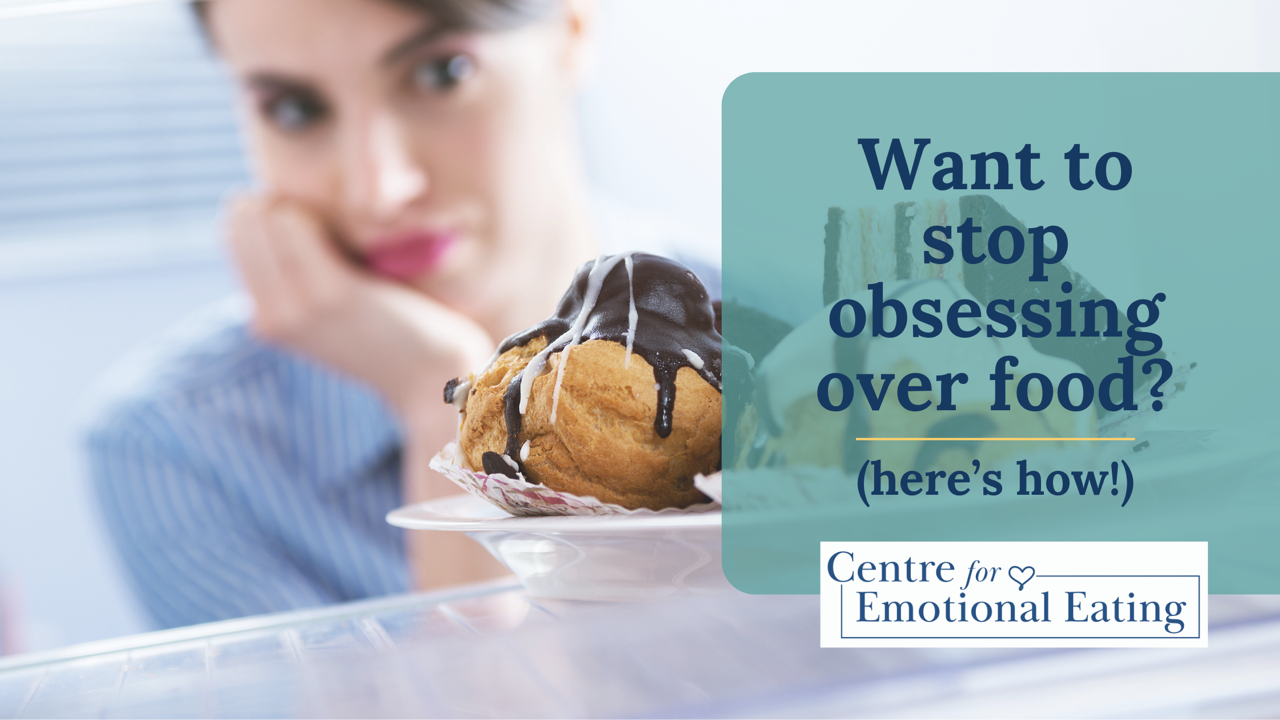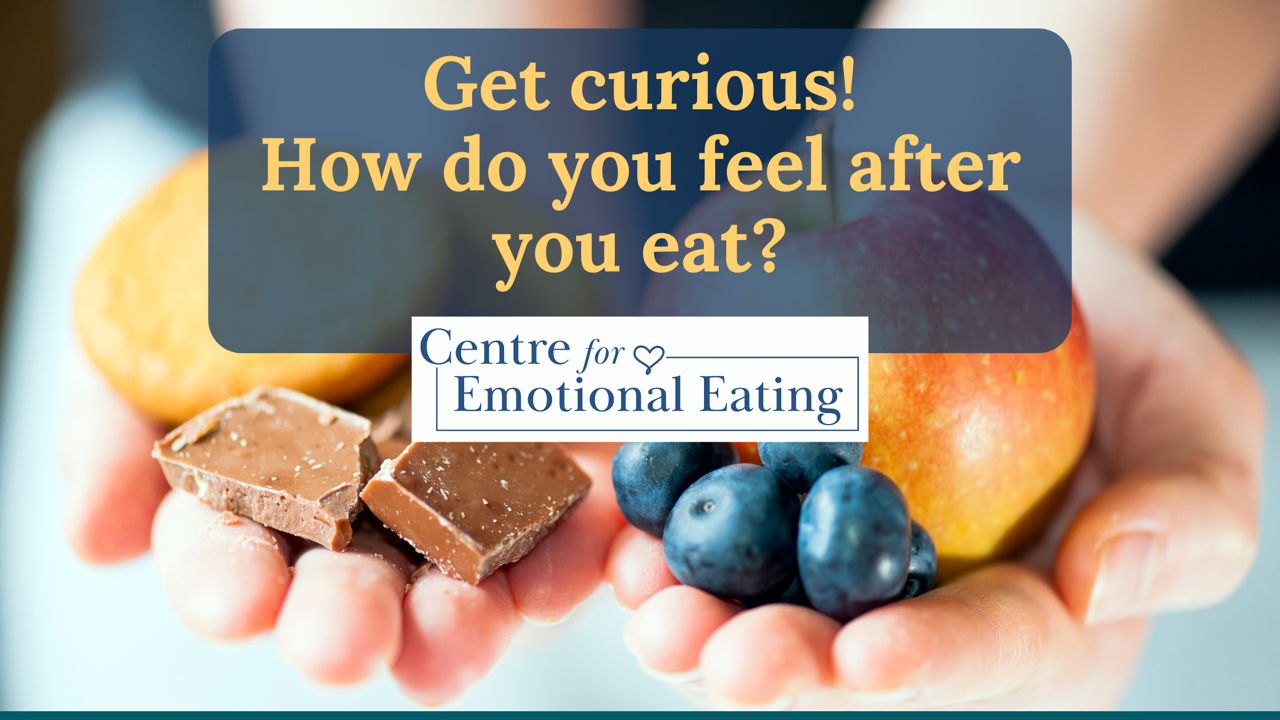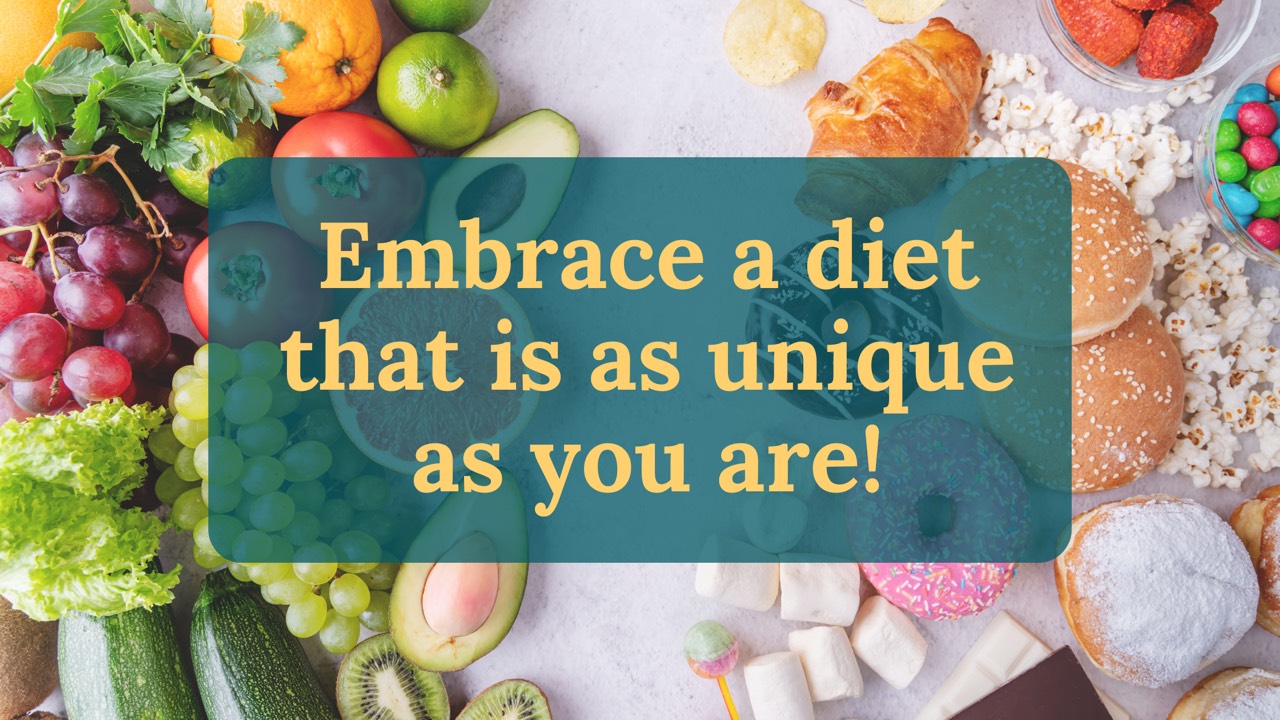BLOG
Find support not just for emotional eating, but all aspects of your well-being.
How to Really Give Yourself Unconditional Permission to Eat

One of the most powerful ways to begin healing your relationship with food is by giving yourself unconditional permission to eat. While diet rules might give you a sense of control, sooner or later you will be feeling out of control, guilty, and shameful when you ‘break’ those rules.
You might have heard of this eating approach before, but what does it really mean? And how can you use it in your day-to-day life? Below we’re breaking down this great step you can take to start loosening your rules around food and start bingeing less.
What Is Unconditional Permission to Eat?
First, it means letting go of the food rules you’ve set for yourself like not eating lunch until noon, labeling fast food as “bad”, or limiting carbs. Then, you give yourself permission to eat what you’re craving, when you want it, and in whatever amount feels right to you. The more you start to lean into this way of eating, the more you’ll notice what foods satisfy you, if you’re hungrier after a workout, and more...
Eating for the Season

Winter can be a challenging time for many people. Less sunlight, colder temperatures, and unpredictable weather can make it difficult to keep your mood up. One of the ways you may be looking for comfort is through food, and that is normal! People often think that emotional eating is automatically bad or negative, but the truth is it is a coping mechanism just like scrolling on your phone or journaling. With awareness you can begin to understand why you reach for certain foods when you feel a certain way.
And it is usual for your cravings to change with the seasons! Cooler temperatures can have us reaching for mashed potatoes and creamy soups. The warmth, texture, and carbs feel like a hug when the Winter feels cold and isolating. Many would agree that a salad or smoothie that was so refreshing in July just isn’t as tempting in January.
Learning to go with the flow of your food preferences is a great way to also help manage your emotional eating. This process has you gently check in w...
How Mindfulness Can Help with Emotional Eating

From easy-to-use apps to therapy practices, mindfulness seems to be an ever-present technique for managing our fast-paced world. But is it more than just a buzzword? Research shows that being more mindful can reduce stress and anxiety, alleviate depression, support your physical health, and more!
In today’s blog post, we’re breaking down just how you can implement this powerful tool into your life with just a few minutes at a time.
What is mindfulness?
Mindfulness is bringing awareness to the present moment. This looks like tapping into what your body is feeling, what thoughts or feelings are floating to the surface, and what you can see and feel (like the sunshine on your face). That might sound intimidating—especially if you’re someone who eats to avoid intense emotions—but acknowledging sensations, smells, and in the present moment means you can let go of anxiety of the future or grief over the past.
How can it help me with my emotional eating?
Emotional eaters often reach for ...
Changing Your Eating Patterns (Without it feeling like restriction)

Here at the Center for Emotional Eating we know that a restrictive diet is not a solution to anything: weight loss, peace of mind, fitting in. We’re not about restricting, but embracing (and eating!) the foods we like and make us feel our best.
So, what happens when there is a need to change your eating? Maybe you’ve developed a new food allergy or heartburn after eating certain foods. Maybe a bout of food poisoning or the flu means you just can’t face eating a specific item again. And did you know our taste buds change as we age? The meals and foods you’ve always relied on might not be as satisfying anymore. And satisfaction is key to avoiding binge eating!
Wanting to avoid these negative outcomes is perfectly human! But if you’ve been on the diet wagon a lot in your life, you might feel like removing specific foods feels a lot like new restrictive rules.
We’re here to help! Try these two steps to navigate your changing tastes without feeling like you’re slogging through new dietin...
What is a Non-Diet Approach? (And how to get there!)

A non-diet approach can mean freedom from:
… food rules.
… an obsession with weight and body measurements.
… grueling workouts you hate.
… guilt and shame around what you choose to eat.
Sounds pretty good, right?! Our bodies are so much more than calories in/calories out. Even if you worked out and ate the exact same as your friend, you both would still look and feel different. In fact, a non-diet approach acknowledges that every person’s body is different and there is no one-size-fits-all way of eating or looking (the opposite of what diet culture wants you to think!).
A non-diet approach believes that every person is unique and that your body knows what it best for it—this goes for eating and movement. You might have come across terminology like “intuitive eating” or “mindful movement”, which is just a way of saying that you turn inwards to be aware of your own needs and bodily cues. For example, your cravings could reveal vitamin deficiencies or you might find certain movement...
Letting Go of Food Rules

A lot of emotional eaters use food rules to try and control their eating. This might look like:
- Counting calories, points, or macros.
- Not eating after 7:00 p.m.
- Not eating or limiting carbs, sugar, or fat.
- Leaving food on your plate.
- Drinking coffee or diet soda to fend off hunger.
Sound familiar? These rigid rules are a reaction to the out-of-control-feeling experienced when strong emotions take over and you head to the fridge looking for something to numb out on. We learn rules from our parents, friendship circles, diet culture, and social media. These rules also make you feel as if you are in control (at least for a little while), which makes it extra frustrating when you “fall off the wagon.”
It may seem logical to try and balance situations where you eat a lot of food with other times of much less food, but the truth is it doesn’t even out that way… And you end up getting stuck in the restrict/binge cycle. This looks like: strict diet > have a craving or emotional exper...
3 Good Things That Can Come from a Binge

Binge eating feels all encompassing. You feel helpless to stop what and how much you are going to eat, and chances are you are doing it in the moments where you are alone. Here are three signs you may have missed during a binge and how to feel better prepared the next time this urge comes up for you:
- That moment when you decide to give into a binge, even when you know it won’t make you feel good in the long run, is actually a good sign. Even if you continue with the binge, you’ve made a mental note that there is an ‘after’ to the binge. We are absolutely not applauding the guilt and shame that comes post-binge but knowing that you are going to get through the binge is the beginning to being able to think beyond it—showing you’re not so afraid of what life might send your way next!
- What do to next: tell yourself, out loud even, that “I am going to get through this.” Speaking to yourself in this way creates a kind of pep talk that can allow some positivity (and even empowerment) co ...
What is Body Neutrality? (And How it Can Help You)

There is a big movement, especially on social media, to be body positive. It is the idea that you feel positive about your body—embracing how it looks, how you feel in it—most of the time. It is meant to lead to more self-confidence, self-love, and total acceptance of your weight, which all sounds great!
… But what if you’ve spent years absorbing diet culture messaging? Or you eat emotionally and that leads to feelings of shame and guilt around your body? It can seem impossible to get to a place where you unconditionally love your body and actively feel positive about it.
This is where the idea of body neutrality comes in.
Being “neutral” about something means you don’t have any positive or negative feelings about a topic, it simply is. This is something you can apply to how you feel about your body. If you constantly beat yourself up after going clothes shopping or suck in your stomach every time you look in a mirror, you might find ALL your ideas around your body are negative. The...
Not All Emotional Eaters are Overweight

When TV shows and media show us what an emotional eater looks like, it is usually someone who would be categorized as obese by the BMI chart. Their rolls and double chin are highlighted to create a character that seems lazy or is the punchline in a few jokes. Not only is this incredibly harmful messaging to those in bigger bodies, it also isn’t indicative of the experience of all emotional eaters.
But there is no one body type for emotional eaters, it can affect anyone.
They could identify as male or female.
They could be a preteen or a person in their 50s.
They could be from any cultural background.
They could reach for savoury or sweet foods when an emotion comes up.
What they do all have in common is that is that they eat to sooth themselves. When a feeling comes up that they can’t manage or don’t want to feel, they reach for food as a distraction, to numb out, even to bring some control or joy to the moment.
While from a caloric perspective, it is true that eating more than ...
What to do When You’re Feeling Lonely During the Holidays

The holiday season often feels like it is an emotional minefield. It can bring up memories of our childhood or longer hours at work. It can exacerbate anxiety with the increase in social situations or kick perfectionist into high gear when we decorate, plan, and host.
But one of the most painful emotions to come up during the holidays can be loneliness. We’re reminded of family we’ve cut ties with or loved ones who have passed away. Maybe even friends you once would have celebrated with are no longer close by. And it isn’t always a physical distance, sometimes we may feel like we’re not relating to our community as they manage their own holiday stressors and expectations. For a season that is about connecting with others, it can really hit home that our family and friends’ groups have gotten smaller or busier.
While feeling lonely during the holidays might not be entirely avoided, there are ways to plan and manage it, so it feels less like a rollercoaster you can’t get off until Jan...


